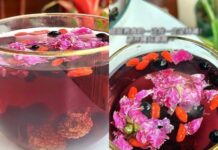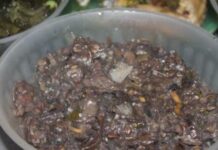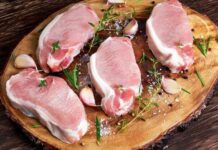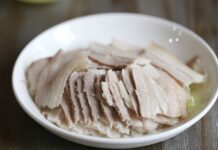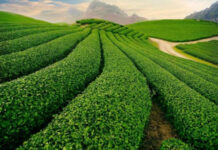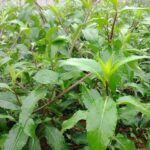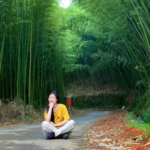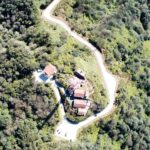Po Tau, located in Chi Vien commune, boasts a prime location on the provincial road 206 and is not far from the majestic Ban Gioc Waterfall. This strategic position serves as a gateway for travelers eager to explore the pristine and authentic Cao Bang. With an area of 44.52 sq. km and a population of over 4,000 people, Chi Vien is blessed with the Quay Son river, a lifeline that also nourishes the beauty of nearby attractions, creating a picturesque landscape that beckons adventurers.
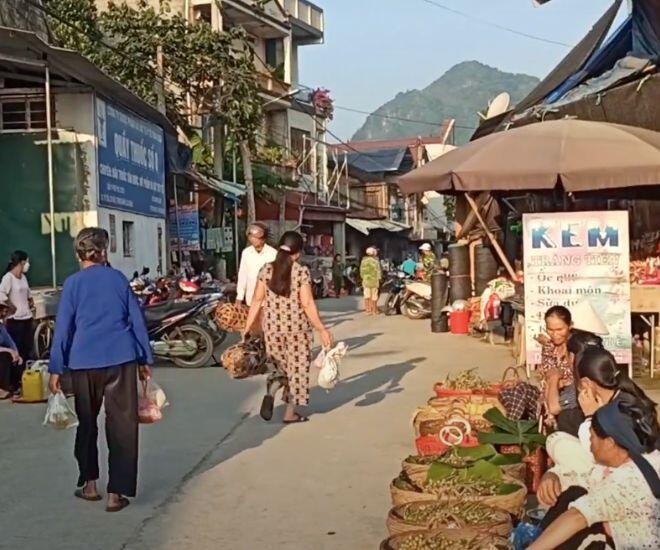
The vibrant rhythm of Po Tau is shaped by its fixed market days according to the lunar calendar: the 1st, 6th, 11th, 16th, 21st, and 26th of every month. This 5-day cycle between market days is characteristic of highland markets, where time seems to flow by its own unique rules, connecting the past with the present. To fully immerse themselves in the bustling and lively atmosphere, visitors should arrive at the market early, when the morning mist still hovers over the mountain peaks and locals from various villages flock in, adorned in their vibrant brocade outfits.
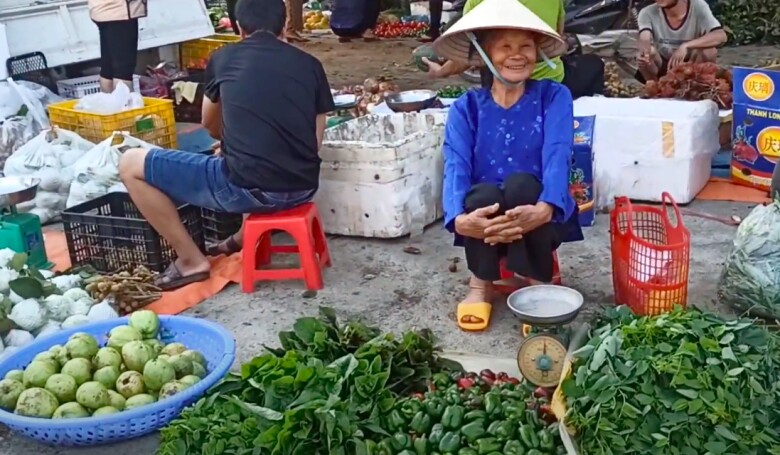
Po Tau is a melting pot of cultural diversity, bringing together the Tay, Nung, Mong, Dao, Lo Lo, San Chi, and Kinh ethnic groups in a shared space. For highlanders, the market is more than just a place for trading; it is a venue for social gatherings and information exchange after arduous working days, a space for emotional connections and community bonding. The market also serves as a romantic meeting place for young men and women, who don their finest traditional attire, perform graceful dances, and sing melodious songs to attract potential partners, transforming each market day into a colorful and emotional cultural festival.
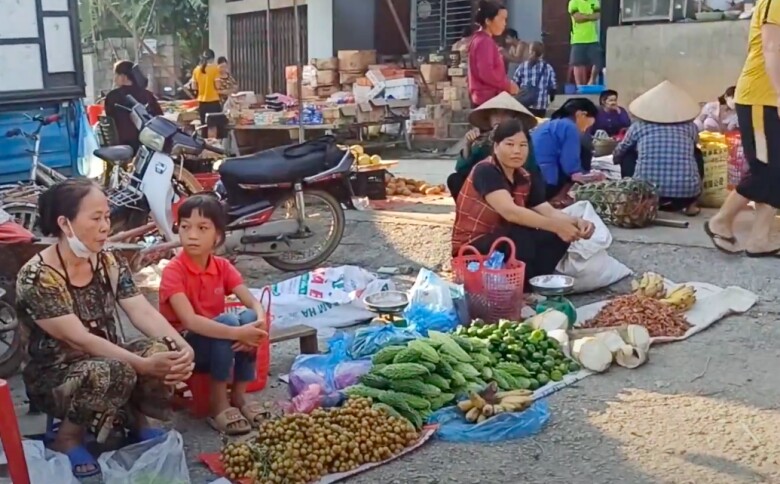
Stepping into the Po Tau market, visitors are enveloped in a world of flavors and colors, showcasing an abundance of forest specialties and local agricultural products. From the round and refreshing mac mat fruit, a famous specialty of Trùng Khánh, to the aromatic chestnuts harvested in early autumn, and seasonal delights such as peaches, apples, and pears. The market also boasts a plentiful supply of fresh bamboo shoots, corn, rice, green forest vegetables, honey, mushrooms, and wood ear fungus—all embodying the essence of this land. Notably, the market is also a hub for exchanging rare herbs and medicinal plants, including xuyen tam (sappanwood), nam ngoc cau (cordyceps), bear bile, wild bitter tea, tam that buds, hawthorn, lingzhi mushrooms, nghien tubers, mistletoe, ba kich, and Chinese foxglove, offering valuable remedies from nature’s pharmacy.
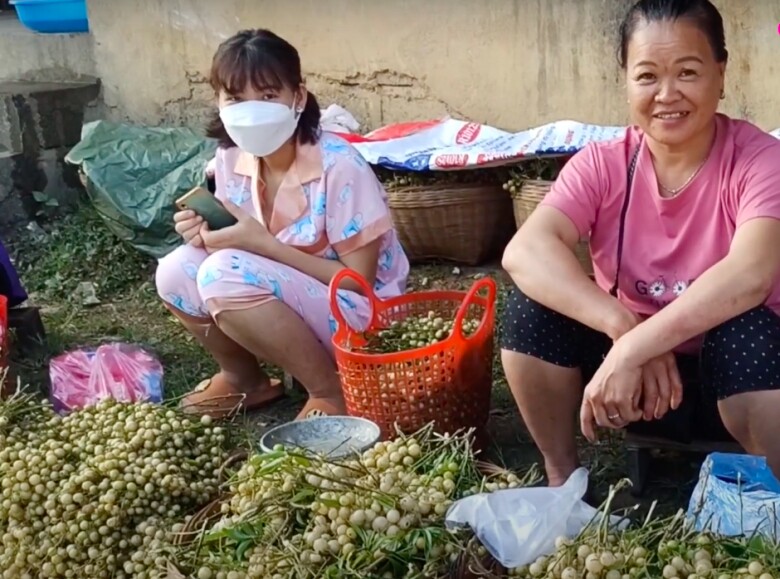
The journey of exploration in Po Tau would be incomplete without indulging in the enticing traditional dishes. Visitors can savor specialties like banh troi (a traditional cake of the Tay and Nung ethnic groups), ngai cake, khau slì, savory banh ban, banh kho, and che lam right in the market. These delicacies encapsulate the rustic yet captivating flavors of the mountainous region. To better serve tourists and locals, the Po Tau market has undergone infrastructure upgrades since 2008, featuring a spacious market hall, a management office, sanitation facilities, a parking lot, and a concrete yard.
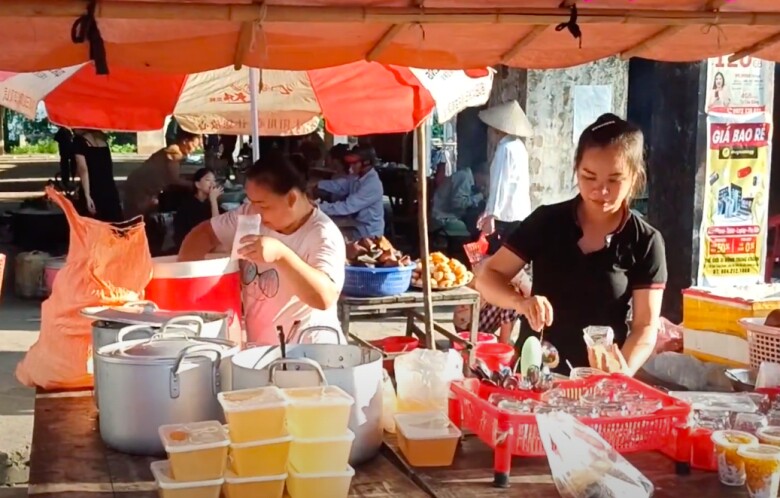
A trip to Po Tau can be enriched by visiting nearby attractions, such as Co La Waterfall, a breathtaking scenic spot likened to a “mini Ban Gioc” with its three majestic tiers, or exploring the surroundings of Thoong Got Hydropower Plant, where the Quay Son river meanders through moss-covered rocks. Here, visitors can experience bamboo rafting, immersing themselves in the grandeur of nature. Travelers from Hanoi can reach Trùng Khánh by bus and then continue their journey to Po Tau. Autumn, particularly September and October, is considered the ideal season to visit, as the landscape transforms into a vibrant palette and the weather is pleasantly cool.
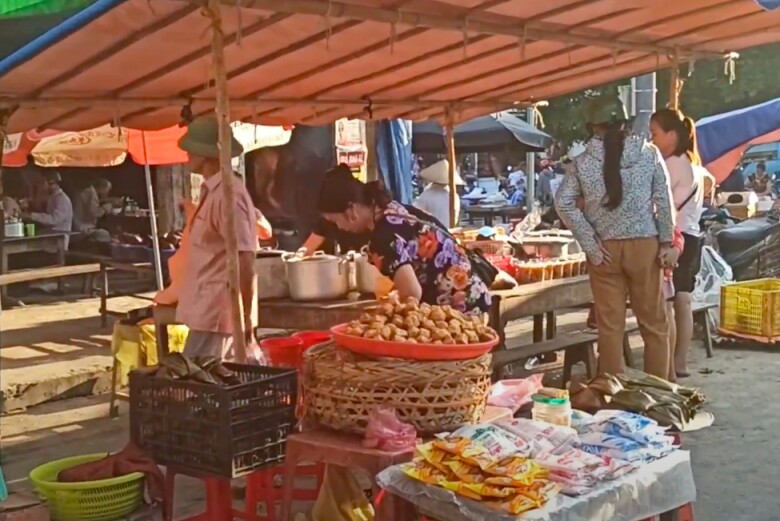
The Po Tau market is not just a captivating tourist destination but also a cultural bridge that offers visitors a deeper understanding of the lifestyle, customs, and soul of the highlanders in Cao Bang. It is a unique cultural experience not to be missed, a journey of discovery into the hidden beauty of this vibrant borderland.
The Mystical Forest: A Hidden Gem 300km from Hanoi, A Breathtakingly Beautiful Escape.
The Nguyen Binh Bamboo Forest is a serene sanctuary nestled in the Cao Bang province of Vietnam. With its tranquil ambiance and rare natural beauty, it has become one of the most beloved destinations in the region. Imagine a lush green bamboo grove, with tall, straight trees stretching as far as the eye can see, creating a dreamy and pristine atmosphere. It is a haven for those seeking a retreat into nature, offering a peaceful escape amidst the mountainous landscape.





